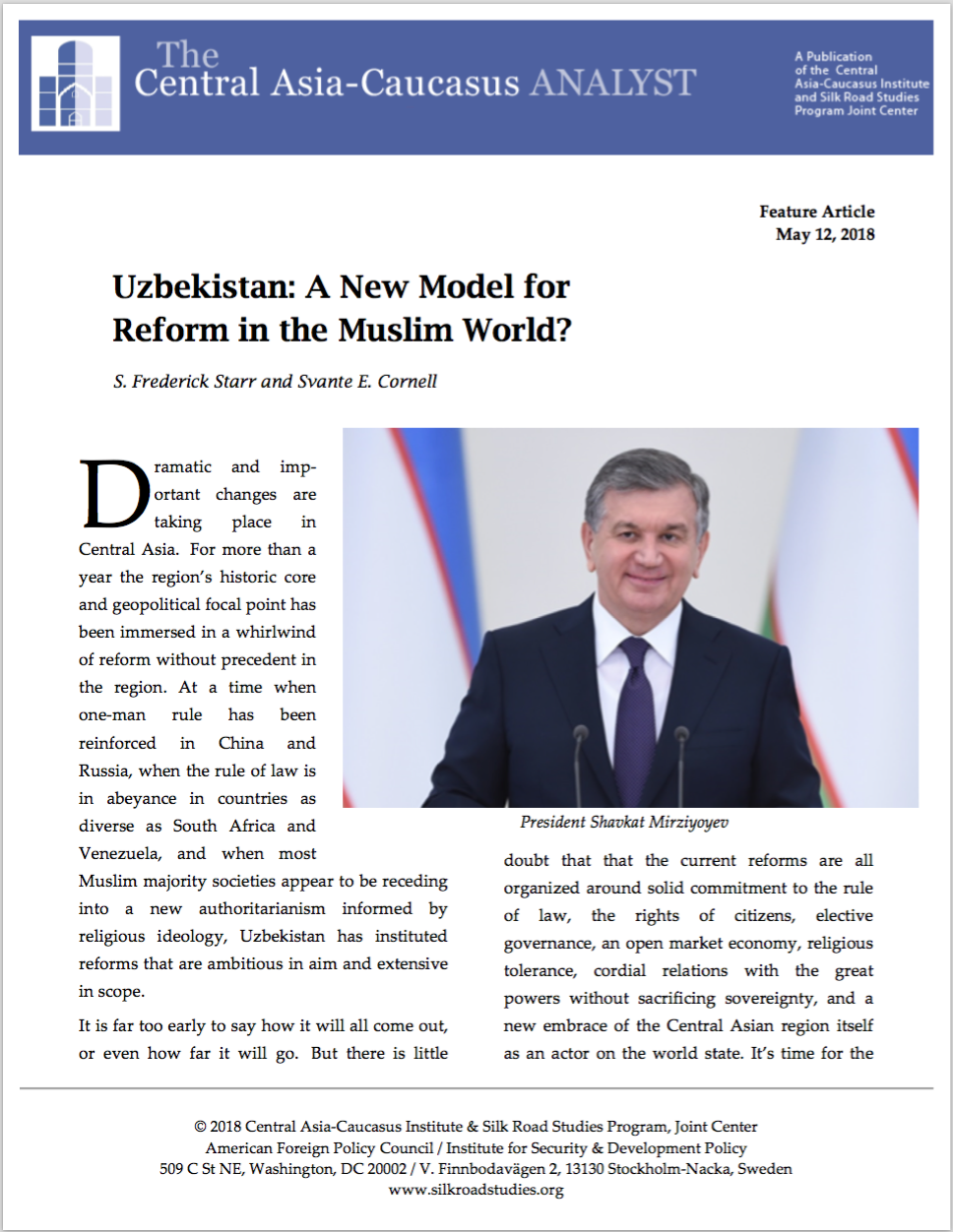[VIDEO POSTED] CAMCA Forum Event: Afghanistan's Emerging Modern Economy, Presented by Men and Women Who Are Building It
Afghanistan's Emerging Modern Economy, Presented by Men and Women Who Are Building It
Co-organized by the Central Asia-Caucasus Institute, the CAMCA Network and Rumsfeld Foundation
This Forum was the first in the series of events offering glimpses of the new Afghanistan which our press neglects, in the words of men and women who are building it.
Speakers:
Ms. Zuhal Atmar, President and Owner of Gul-Mursal Waste Paper Recycling Factory, the first woman run recycling plant in Afghanistan
Mr. Farshid Ghyasi, President and CEO of NETLINKS Inc. Afghanistan; Partner at Click.af, the leading e-commerce website in Afghanistan
Mr. Assadullah Zamir, Founder of Abreshum Venture; Founder of solar energy companies Akbar Zahir and Lunar; CAMCA Network Member
Moderator:
S. Frederick Starr, Chairman, Central Asia-Caucasus Institute at American Foreign Policy Council
When: Wednesday, April 7, 2021
The event was livestreamed on the CACI Facebook page and is now available on YouTube.
[VIDEO POSTED] CACI Online Forum: Regional Economic Outlook for Central Asia and the Caucasus
Regional Economic Outlook for Central Asia and the Caucasus
How have countries of Central Asia and the Caucasus responded to COVID-19 and how are they planning to recover and rebuild? The Central Asia-Caucasus Institute invites you to the presentation of the International Monetary Funds' Regional Economic Outlook for Central Asia and the Caucasus, published on October 19, 2020. This important study offers a positive account of mitigation measures but cautionary words for the future. Our speaker was Dr. Subir Lall, Deputy Director, Middle East and Central Asia Department, International Monetary Fund. S. Frederick Starr chaired and moderated.
When: Monday, December 21, 2020, 10 - 11 AM EST
The event was live-streamed on the CACI Facebook page and is now available on Youtube.
[Video Posted] CACI Online Forum: Status Update on Uzbek Reforms
Status Update on Uzbek Reforms
Speakers:
Ron van Rooden, Chief of
Aziza Umarova, CEO, SmartGov
Alexander Gordin, Managing Director, Broad Street Capital Group
Moderator:
Mamuka Tsereteli, Senior Fellow, Central Asia-Caucasus Institute
When: Tuesday, September 29, 2020 at 10am EDT
The event was live-streamed on our Facebook page and is now available on Youtube.
Uzbekistan: A New Model for Reform in the Muslim World
By S. Frederick Starr and Svante E. Cornell
Central Asia-Caucasus Analyst
May 12, 2018
 Dramatic and important changes are taking place in Central Asia. For more than a year the region’s historic core and geopolitical focal point has been immersed in a whirlwind of reform without precedent in the region. At a time when one-man rule has been reinforced in China and Russia, when the rule of law is in abeyance in countries as diverse as South Africa and Venezuela, and when most Muslim majority societies appear to be receding into a new authoritarianism informed by religious ideology, Uzbekistan has instituted reforms that are ambitious in aim and extensive in scope.
Dramatic and important changes are taking place in Central Asia. For more than a year the region’s historic core and geopolitical focal point has been immersed in a whirlwind of reform without precedent in the region. At a time when one-man rule has been reinforced in China and Russia, when the rule of law is in abeyance in countries as diverse as South Africa and Venezuela, and when most Muslim majority societies appear to be receding into a new authoritarianism informed by religious ideology, Uzbekistan has instituted reforms that are ambitious in aim and extensive in scope.
It is far too early to say how it will all come out, or even how far it will go. But there is little doubt that that the current reforms are all organized around solid commitment to the rule of law, the rights of citizens, elective governance, an open market economy, religious tolerance, cordial relations with the great powers without sacrificing sovereignty, and a new embrace of the Central Asian region itself as an actor on the world state. It’s time for the world to take stock of this startling development.

